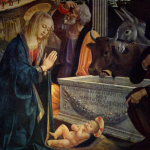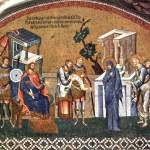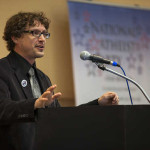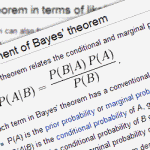Why the Resurrection Was Not a Conspiracy
by Karlo Broussard
Filed under The Resurrection
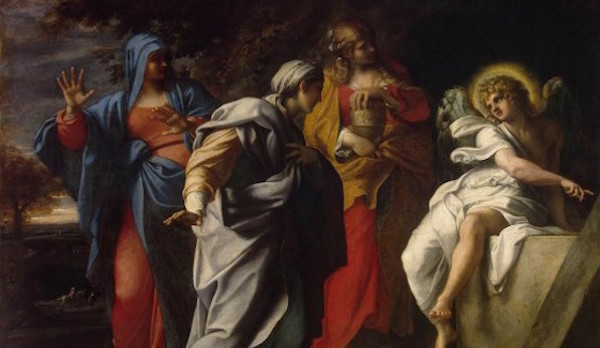
When confronted with the early Christians’ testimony about the Resurrection of Jesus, it is natural to question whether it’s credible. A healthy skepticism demands we test the claims of such an event.
One way to do so is by offering alternative explanations, and one such explanation is the conspiracy theory. This theory purports to explain Christ’s empty tomb and postmortem appearances by claiming the early Christians stole the body and made up the Resurrection story.
I don’t fault anyone for raising the question, because it's natural to ask, “Did the early Christians make this stuff up?”
I contend they did not, and there are two good reasons to think so.
The Apostolic Dilemma
First, the early Christians had nothing to gain and everything to lose in lying about Jesus’ Resurrection. As I learned from my mentor and friend Fr. Robert J. Spitzer, this kind of jeopardy makes for the most credible witness, and St. Paul understood this. Paul uses this fact to argue for the credibility of the early Christian testimony and presents his argument in the form of a two-horned dilemma in 1 Corinthians 15:
[I]f Christ has not been raised, then our preaching is in vain and your faith is in vain. We are even found to be misrepresenting God, because we testified of God that he raised Christ, whom he did not raise if it is true that the dead are not raised (1 Cor. 15:14-15).
St. Paul presents the second horn in verse 19 and then expounds on it in verses 30-32:
If for this life only we have hoped in Christ, we are of all men most to be pitied . . . Why am I in peril every hour? I protest, brethren, by my pride in you which I have in Christ Jesus our Lord, I die every day! What do I gain if, humanly speaking, I fought with beasts at Ephesus? If the dead are not raised, “Let us eat and drink, for tomorrow we die.”
Notice in the first horn St. Paul argues that if he and the witnesses believed in God, then they would be bearing false witness in their proclamation of Jesus’ Resurrection—“we are even found to be misrepresenting God.” What would the early Christians have to gain from a lie while still believing in the God of Abraham, Isaac, and Jacob? Damnation! Is it reasonable to think the early Christians believed their eternal salvation was worth risking for such a lie?
In the second horn St. Paul seems to consider what they might gain from the lie if they were unbelievers and didn’t believe in God or the Resurrection. Notice in verse 19 he writes, “If for this life only we have hoped in Christ” and then in verse 32 “What do I gain if, humanly speaking, I fought with beasts at Ephesus.” Paul’s argument is thatnothing except persecution and death is to be gained from such a lie. For Paul, if this is the reward, then we might as well “eat and drink, for tomorrow we die.”
There may be alternative explanations for the falsity of the Resurrection testimonies that are worthy of consideration, but for St. Paul the conspiracy theory is not one of them.
The Testimony of Women
The second reason to think the early Christians were not making up the Resurrection story: they included women as the first witnesses.
One of the many criteria historians use to test historicity is the criterion of embarrassment. This refers to any action or saying the early Christians would have found embarrassing and apologetically unappealing. No Gospel writer would want to include such information, because it would undermine the Gospel’s purpose. Having women as the first witnesses of the Resurrection fits the bill for such a criterion.
In first-century Judaism, the testimony of women was inadmissible in a court of law: “But let not the testimony of women be admitted, on account of the levity and boldness of their sex” (Josephus, Antiquities of the Jews, 4.8.15).
If a woman’s testimony was not considered credible in a court of law, it would seem that the apostles would not use the testimony of women to convince their hearers about the truth of the empty tomb and the appearances of the resurrected Christ. It is more reasonable to conclude, if the Gospel writers were fabricating this story, that they would have chosen men to be the first witnesses—perhaps Joseph of Arimathea and Nicodemus.
The atheist activist and historian Richard Carrier, in chapter 11 of his book Not the Impossible Faith, objects to this appeal to women. He argues that because the Gospels are history and not court documents, it is improper for the Christian apologist to go from “courtroom decorum to everyday credibility.”
Furthermore, he contends, while the testimony of women was not accepted in a court of law, it was admissible as a source for historical claims. Carrier appeals to Josephus’s account of the massacres at Gamala and Masada, both of which have two women as their sources.
In response to Carrier’s first objection, I think it is legitimate for the Christian apologist to use the inadmissibility of women’s testimony in the court of law, because the Gospel writers were making an apologetic case to convince their hearers of the truth of the Resurrection. They were not merely recounting a historical event but presenting a convergence of evidence for the truth of Jesus’ rising—empty tomb, multiple post-mortem appearances, conversions, etc.
Moreover, notice the reason Josephus gives for not admitting the testimony of women: “on account of the levity and boldness of their sex.” The word levity means to treat a serious matter with humor or in a manner lacking due respect. While this view of women might not lead to an utter dismissal of a woman’s testimony, it would surely make such a testimony less desirable if one is fabricating a story, especially when it is just as easy to use men as the first witnesses.
Neither does Carrier’s appeal to Josephus using women as sources for his account of the massacres at Masada and Gamala undermine the Christian apologist’s argument.
In reference to the slaughter at Gamala, Josephus states that the two women who served as his sources were the only ones who escaped (The Wars of the Jews, 4.82). While not explicit when recounting the massacre at Masada, Josephus seems to imply the two women who were his sources for that event were sole survivors as well (The Wars of the Jews 7.399).
So it’s obvious Josephus is going to use the testimony of women for these events, since no one else survived.
With that in mind, it’s easy to see why Carrier’s appeal to Josephus’s reliance on these women does not undermine the Christian argument. The Gospel writers had options when deciding whom to place as witnesses of Christ’s Resurrection, but Josephus did not have options when considering on whose testimony to base his account of the massacres.
The unreliability of the testimony of women in first-century Judaism still stands as a legitimate case of the criterion of embarrassment and thus can be used when making the case for the historicity of Jesus’ Resurrection.
There are many more reasons one can give to show the conspiracy theory is unreasonable. But I think the two presented above are sufficient—namely, people don’t die for what they know to be a lie; and liars don’t use unreliable testimonies to convince audiences of their fabricated stories.
In this Easter season, we can rest assured that faith in the resurrected Jesus is at least not based on a lie.
Related Posts
Note: Our goal is to cultivate serious and respectful dialogue. While it's OK to disagree—even encouraged!—any snarky, offensive, or off-topic comments will be deleted. Before commenting please read the Commenting Rules and Tips. If you're having trouble commenting, read the Commenting Instructions.





